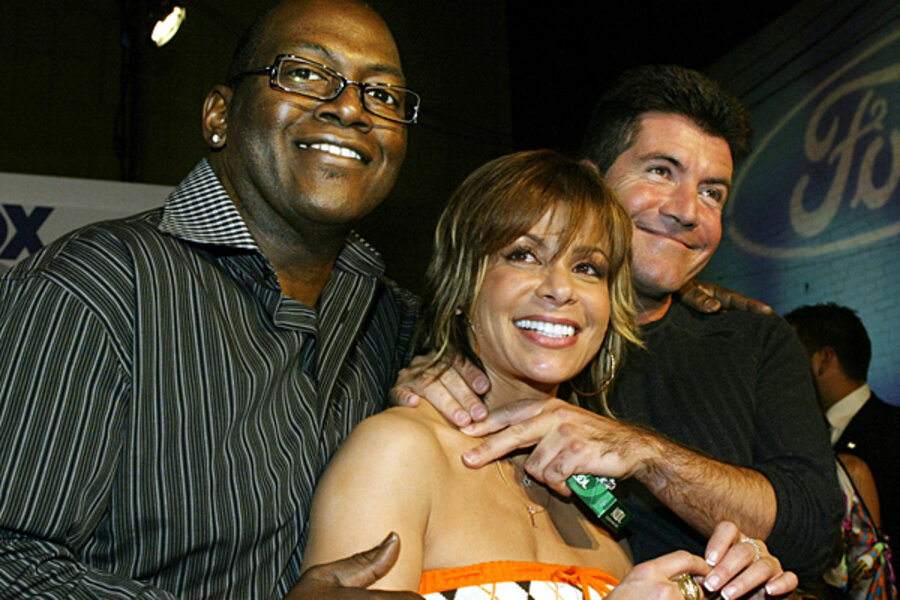American Idol contestants claim racial discrimination. Do they have a case?
Loading...
Nine former "American Idol" contestants have filed a claim of racial discrimination against the popular reality TV show "American Idol," stating that they were they were publicly disqualified based on their race.
But what does a legal expert – and legal precedent – say about the legal merit of the claim?
The claim includes Season 2's Corey Clark and Jaered Andrews, Season 3's Donnie Williams, Season 5's Terrell Brittenum and Derrell Brittenum, Season 6's Thomas Daniels and Akron Watson, Season 8's Ju'Not Joyner and Season 9's Chris Golightly. New York attorney James Freeman is representing them.
TMZ broke the story last Friday, quoting from the letter Freeman submitted to the U.S. Equal Employment Opportunity Commission. Freeman claims that the contestants were essentially applying for "employment" with Idol. During the background check that producers conduct on all American Idol contestants, they ask them whether they have ever been arrested, which would be a violation of California employment law. State law forbids employers from asking applicants about arrest history.
Freeman also claims that the show has never "publicly disqualified a white or non-black American Idol contestant in the history of the eleven season production," according to the letter.
Gloria Allred, a founding partner of law firm Allred, Maroko and Goldberg in Los Angeles, has been practicing discrimination law in California for more than 30 years and says that in order for the contestants to win the potential lawsuit, it would first need to be established that "Idol" is, in fact, an employer.
"This is not a traditional employment application situation," Ms. Allred says. "If they can show that 'Idol' disqualified African Americans because of their arrest records, they may be able to establish a violation."
But legal precedent, at least outside of California, indicates that it may be difficult to prove that American Idol was their employer.
Last year, two black men tried to sue another reality TV show, "The Bachelor," for racial discrimination. The class-action lawsuit got thrown out of a Tennessee court because the judge, US District Court Judge Aleta Trauger, said that contestants on the show are being cast, not hired, and that casting for TV, movies, and plays is constitutionally protected by the First Amendment as free speech. The court decided that "Bachelor" casting is not racially biased, but even if it were, it would be legal.
"We treat everybody the same," "Idol" producer Nigel Lythgoe said in response to the lawsuit in an interview with TMZ. "I don't think I've ever seen racism at the show."
Fox representatives did not respond to calls for comment.
Additionally, four other former American Idol contestants have spoken out against the allegations of racism, with Season 4's Vonzell Solomon telling TMZ, "All of our contracts were clear about how the background checks worked and that we could be disqualified if we lied about our past."
Season 6's contestant Melinda Doolittle agreed in an interview with TMZ. "In my experience on the show, the 'Idol' team strives to champion everyone, regardless of race," she said.
American Idol has also had three black winners in 11 seasons, Reuben Studdard, Fantasia Barrino, and Jordin Sparks.







